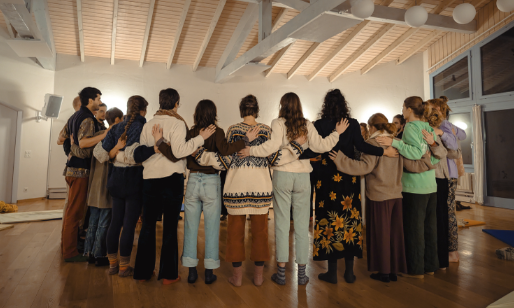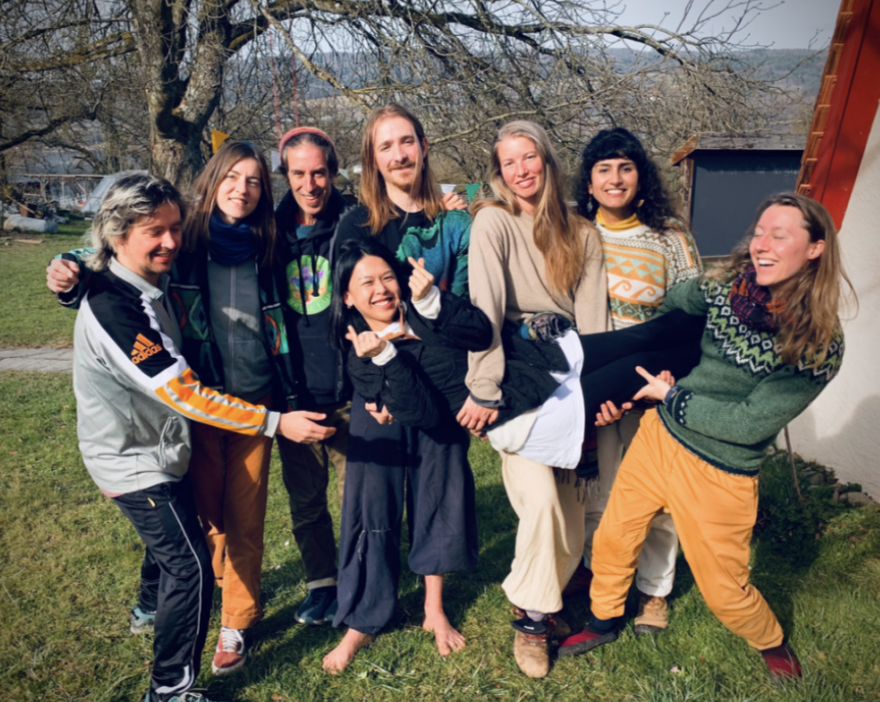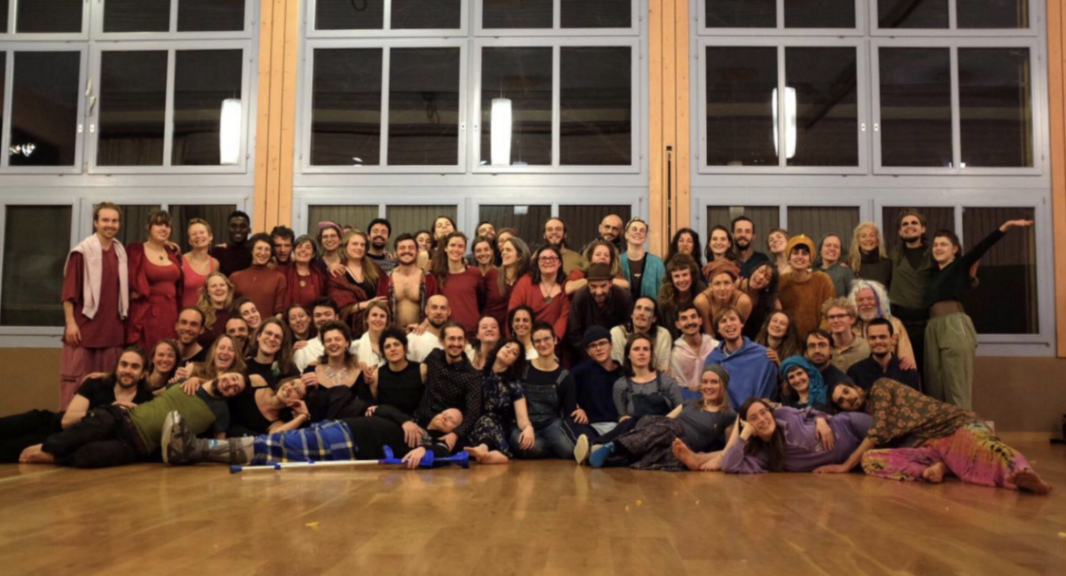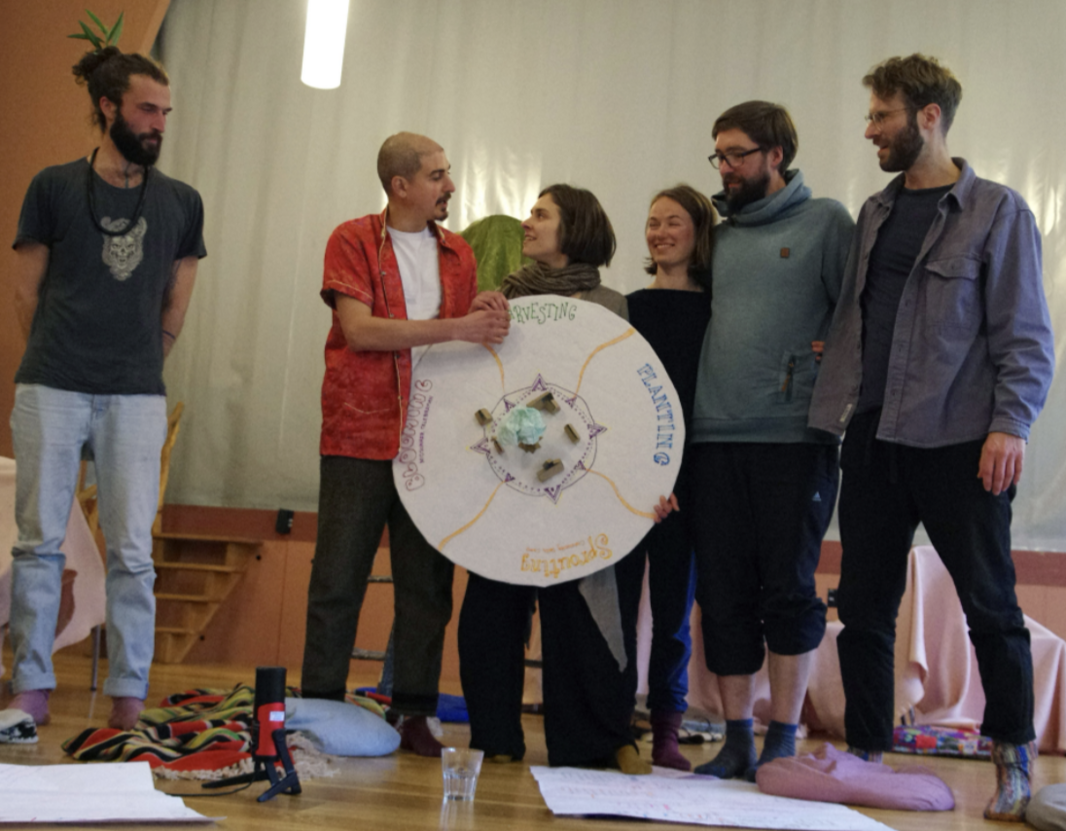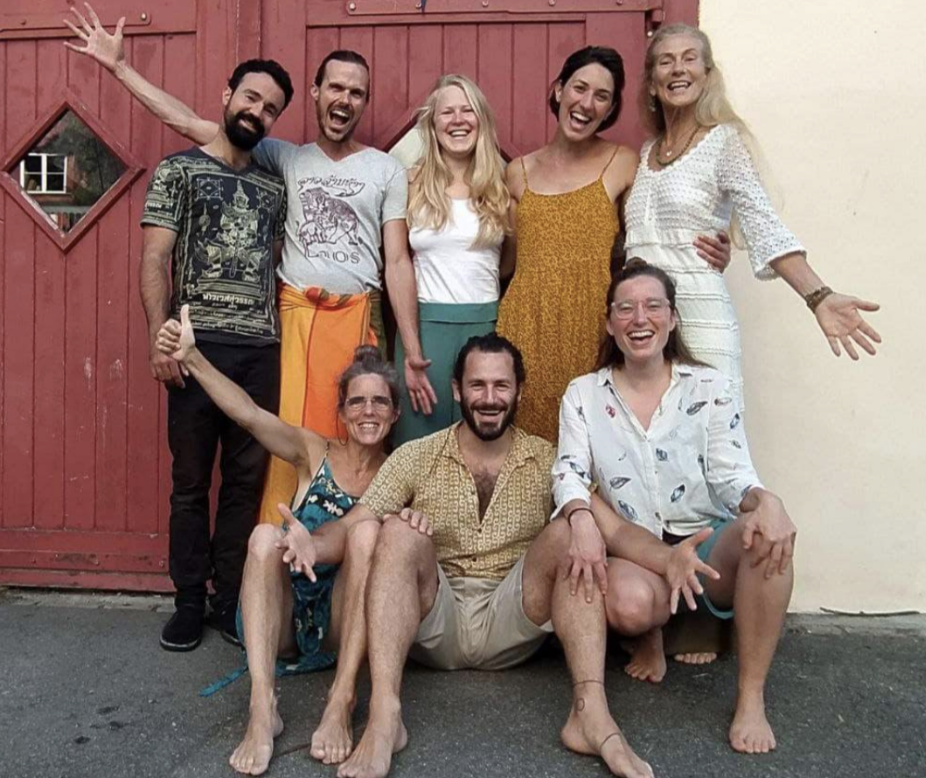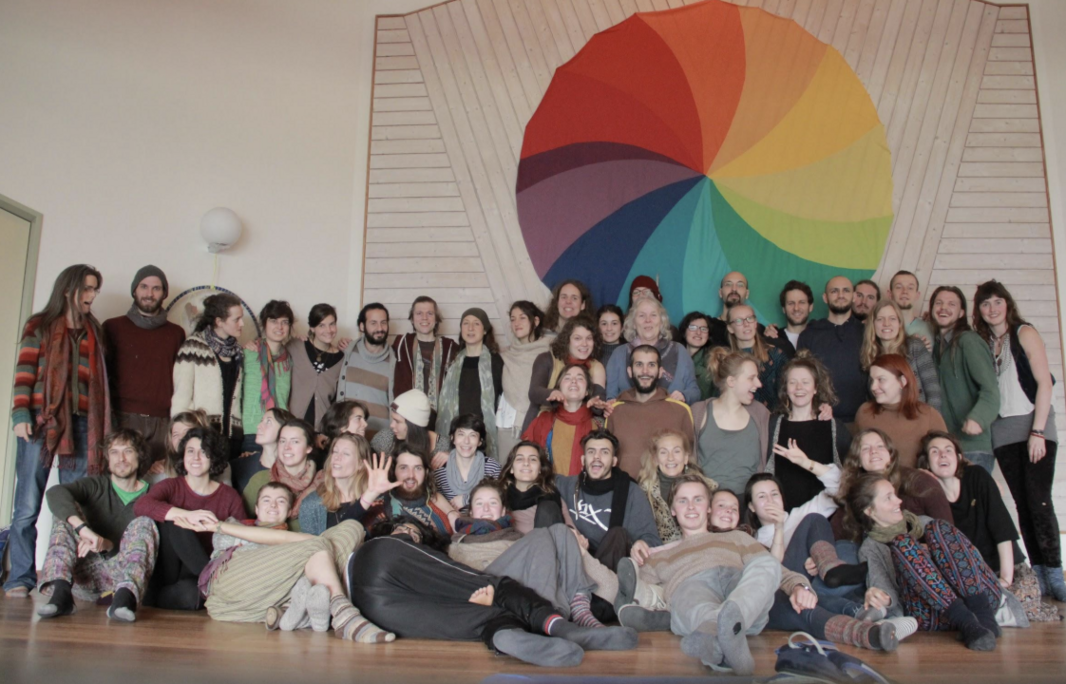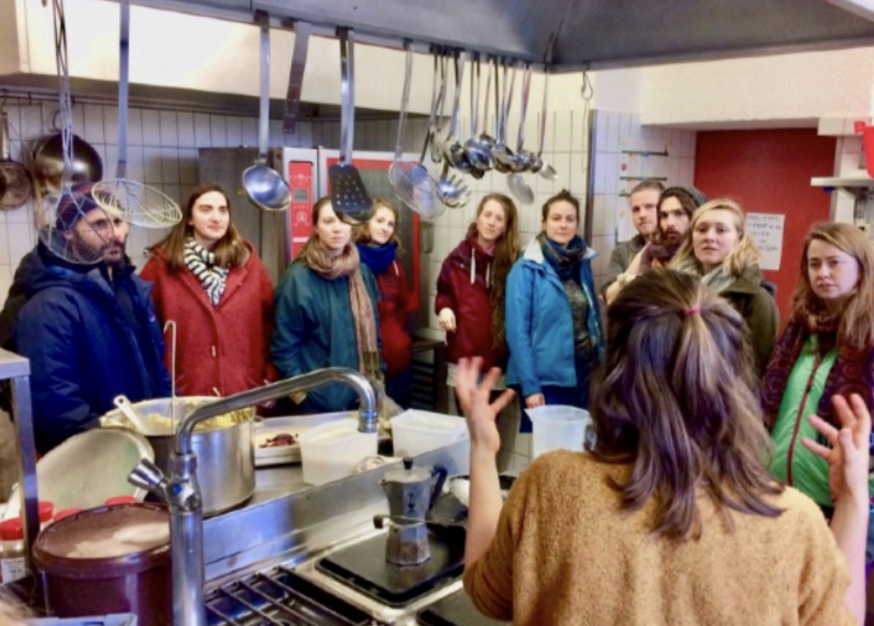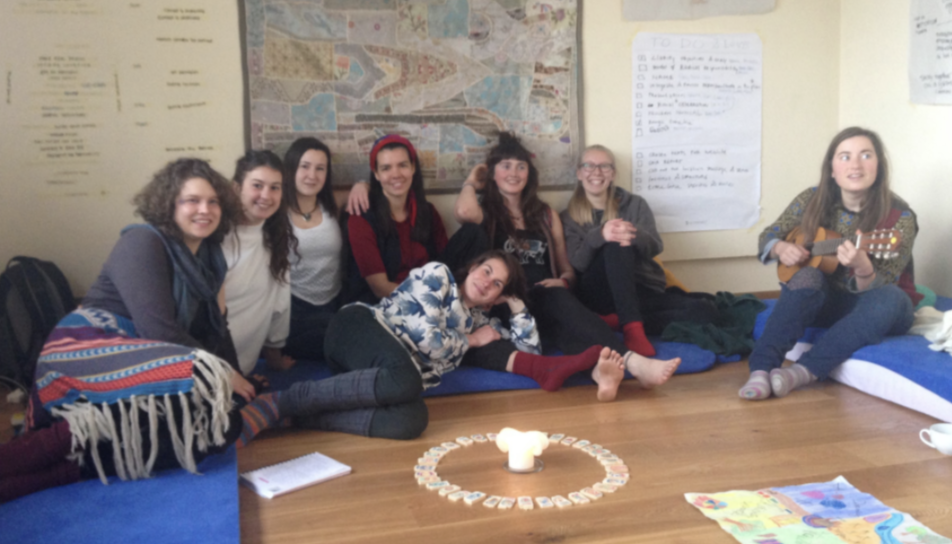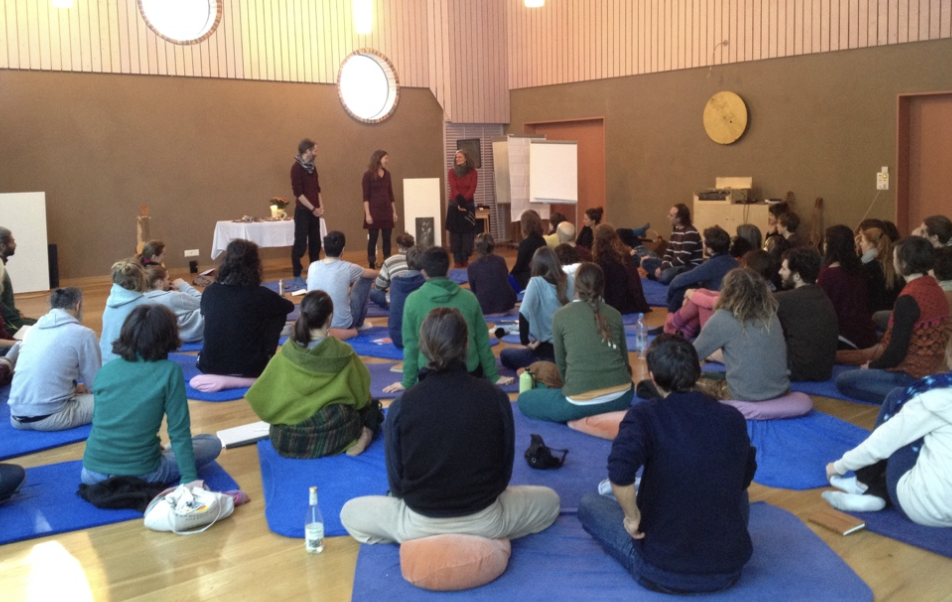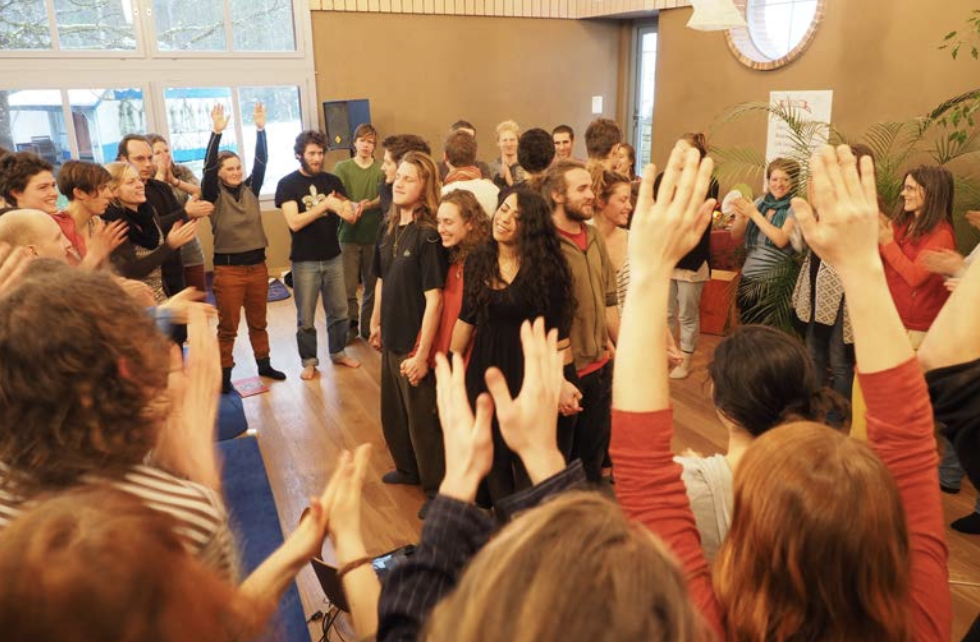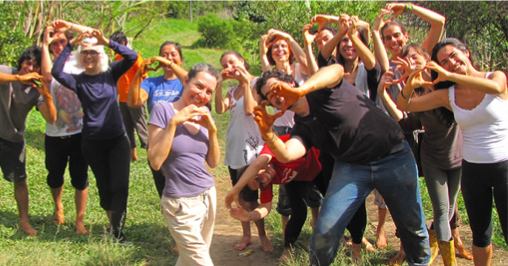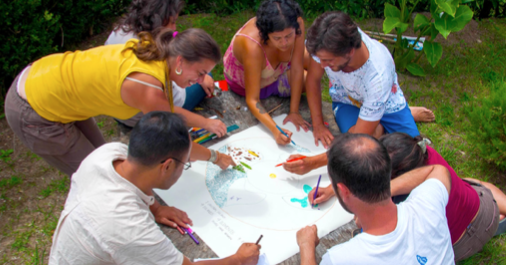Schloss Glarisegg EDE's - REPORTS
2025
The EDE Glarisegg 2025 took place the ecovillage Schloss Glarisegg for the 10th year. The program of EDE Glarisegg is based on the Gaia educational program and includes material that falls into the 5 dimensions of sustainability. There is a focus on the social and cultural/worldview aspects but at no point to the ecological or economic aspects get forgotten and all aspects inform everything that takes place during the EDE Glarisegg.
2024
The EDE Glarisegg 2024 took place the ecovillage Schloss Glarisegg for the 9th year. The program of EDE Glarisegg is based on the Gaia educational program and includes material that falls into the 5 dimensions of sustainability. There is a focus on the social and cultural/worldview aspects but at no point to the ecological or economic aspects get forgotten and all aspects inform everything that takes place during the EDE Glarisegg.
2023
From January 13th - February 18th 2023, the Ecovillage Design Education Course found its way again to the beautiful community of Schloss Glarisegg, in Steckborn. In the eighth year, 42 people out of 16 countries came together to explore the communal ways of a transformative culture. Focused on social, ecological and economic issues the participants were trained to find more sustainable and common responses to the challenges people are facing in this world. The goal in there was to include the core values of GAIA Education which supported also the framework of the schedule. Besides authentic relating methods, the course included tools as Sociocracy, Scott Peck Community Building and Forum Theatre to find ways to experience directly the ways of living in a community.
2022
The EDE in Glarisegg is a five week long journey. In the last years, the course itself ended after four weeks and then gave another week for the so called „growing together days“. In this week, all EDE alumni are invited to join the current group, welcome them to the EDE network and have a whole week of open space, celebrating and just meeting each other. This year however, due to the Covid situation, the growing together days did not take place, so that we had the possibility to stretch the program a bit and be more flexible with the planned curriculum.
2021
In 2021, we welcomed a total of 23 participants from 7 different countries. The course language was English. Due to the restrictions related to the Covid-19-pandemic, the number of participants was smaller than in previous courses. The course was initially planned for January and February 2021 but had to be postponed due to the pandemic. Since it was held in summer and the seminar center of the community was fully booked, the participants were lodged in tents and the course was held mainly outdoors.
2020
The Glarisegg community on the Swiss side of Lake Constance has been in existence since 2003. Glarisegg includes a free school, a permaculture garden, a seminar center with a guesthouse and campsite and offers amazing vegetarian and vegan food.
This year, for the third year in a row, the four-week Ecovillage Design Education (EDE) programme was hosted at Schloss Glarisegg. With the four dimensions of social, worldview, ecology and economy, participants learnt how to create, develop and maintain eco villages and eco projects. 36 participants from 16 different countries were welcomed
2019
This year, for a fourth time, the five week Ecovillage Design Education (EDE) program was hosted at Schloss Glarisegg. Based on the Whole Systems Design for Sustainability including the dimensions of social, worldview, ecology and economy we learnt how to create, develop and maintain eco villages and eco projects. We welcomed a total number of 55 participants from 21 different countries. Brought together by organisers Elisabeth Schrag, Jashana Kippert and Sonja- Vera Schmitt we practiced "Creating a Transformative Culture". This year the EDE was again structured with Sociocracy 3.0, allowing participants to self-organise and make decisions through the Community Care Council. Other highlights on the learning journey were Possibility Management, Deep Ecology, Dragon Dreaming, Deep Democracy, Spiral Dynamics, Forum, Reinventing Organisations, Economy of the Common Good, Conflict Resolution and Transparent Communication. Sessions were facilitated by the team, community members and external facilitators who brought specialised topics.
2018
This year for a third year in a row the four week Ecovillage Design Education (EDE) program was hosted at Schloss Glarisegg. With the four dimensions of social, worldview, ecology and economy we learnt how to create, develop and maintain eco villages and eco projects. We welcomed a total number of 36 participants from 16 different countries. Brought together by organisers Eisabeth Schrag, Jashana Kippert and Sonja-Vera Schmitt we practiced "Creating a transformative culture". This year the EDE was structured with Sociocracy 3.0, allowing participants to self-organise and make decisions with all voices heard. Other highlights on the learning journey were Possibility Management, Deep Ecology, Dragon Dreaming, Deep Democracy, Forum and Transparent Communication. Sessions were facilitated by community members and external facilitators who brought specialised topics.
2017
The course held in Glarisegg, Switzerland 2017 has 47 participants. It lasts one month and has the intention of creating a “transformational culture” together with the participants while focusing on two aspects:
-
Educational: Offering knowledge and tools for personal development and creating & maintaining eco villages.
-
Practical experience: We develop a project during the workshop.
2016
The focus of the EDE in a Swiss castle was to provide the possibility to connect to the field of Deep Ecology and Democracy while building an inclusive community.
What is an EDE (Ecovillage Design Education programme)?
Ecovillage Design Education programmes, often referred to as ‘EDEs’, take place in 50 countries in settings ranging from tribal and traditional communities to intentional ecovillages, from urban slum to universities and training centres. The duration of these programmes are around 125 hours over a full month, although this may vary slightly depending on where and when they are taken. The EDEs provide participants of all ages with the knowledge and practical skills to design a society which uses energy and materials with greater efficiency, distributes wealth fairly and strives to eliminate the concept of waste.
How to run an EDE
Several of our EDE graduates have carried on organising EDE programmes in their local areas, and you are warmly encouraged to do so after completing your course.
The recommended time frame of an EDE is four weeks, however this is not fixed and varies with each individual programme.
The material can be condensed into smaller workshops, spread out over a longer period, or distributed in blocks at different times and locations.


